Gynecologist in Mumbai India
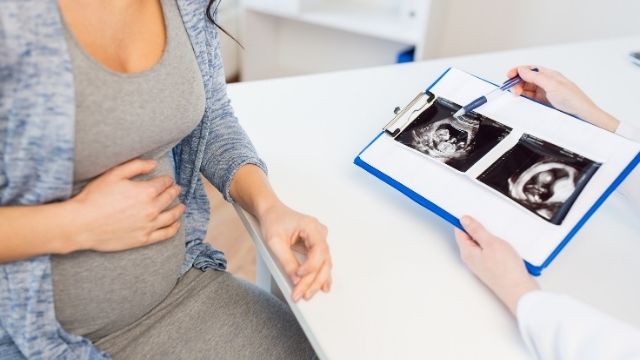
What is Gynaecology?
Gynaecology or gynecology is a type of medical practice that deals with the health of the uterus, vagina, and ovaries, collectively known as the female reproductive system.
The word Gynaecology is derived from the oblique stem of Greek γυνή ”woman” and logia “study”. The counterpart of gynecology is andrology that deals with the male reproductive system.
What is a gynecologist?
Gynecologists specialize in the female reproductive system, such as the fallopian tubes, cervix, uterus, ovaries, vulva, and vagina. These surgeons also diagnose and treat patients with contraception, menstrual problems, menopause, sexuality, and infertility issues. Some gynecologists provide primary care, while others provide parental care.
Some of the menstrual problems are:
- Amenorrhea – This problem occurs due to the absence of menstrual periods.
- Dysmenorrhea – Due to painful menstrual periods, women suffer from dysmenorrhea.
- Menorrhagia – This is caused by heavy menstrual periods. The common indication of menorrhagia is hysterectomy (surgically removing the uterus).
Gynecologists also detect ovarian cysts, human papillomavirus, endometriosis, infection in any area of the female reproductive system, prolapse of the pelvic organs, bacterial, fungal, protozoal, and viral infections.
A pap smear is an examination performed by most gynecologists. This examination uses an instrument known as a speculum, which helps to detect abnormalities like ovarian and cervical cancers. A complete diagnosis of the pelvic area is conducted by Pap smears. Then, they are accompanied by a rectovaginal examination. Gynecologists also use an ultrasound to be sure about any abnormalities detected by a rectovaginal exam and a Pap smear.
Some gynecologists are also obstetricians who specialize in managing labor, pregnancy, and puerperium (time after childbirth). Gynecologists or obstetricians also diagnose problems ranging from preventive care to STDs (sexually transmitted diseases) to family planning. They also deal with endocrinology, adolescent gynecology, and behavioral problems among young women.
The four subspecialties for GYN/OB are:
- Reproductive endocrinology
- Gynecologic oncology
- Maternal/fetal medicine
- Urogynecology/reconstructive pelvic surgery
What does a gynecologist do?
Gynecologists focus on women’s health, especially on the female reproductive system. They ensure the reproductive health of a woman by performing the standard yearly exam on adult women. During this exam, women are examined by:
- STD tests
- Pap smear
- Breast exam
- Monitor the woman’s use of birth control
Gynecologists who are also obstetricians look after the health condition of the mother and the fetus during the time of pregnancy.
A gynecologist also performs the role of a general practitioner of women. There are many such problems women have related to their reproductive organs, which are diagnosed by a gynecologist. These are:
- PCOD
- Cervical cancer
- Vaginal infection
- Urinary tract infection
- Sexual pain
If needed, gynecologists, also perform minor surgeries like tube tying.
Gynecological Problems and Conditions
Some of the gynecological problems are:
- Abnormal vaginal bleeding
- Urgent and frequent need to urinate
- Burning sensation during urination
- Vaginal bleeding during and after intercourse
- Pressure or pain in the pelvis
- Burning, itching, swelling, soreness, redness in the vaginal area
Some of the gynecological conditions that are responsible for gynecological problems are:
- HIV/AIDS
- Uterine fibroids
- Endometriosis
- Sexual violence
- Gynecologic cancer
- Interstitial cystitis
- Polycystic ovary syndrome
- Sexual violence
When to see your gynecologist?
If you are facing the below-mentioned issues, you must immediately seek help from Dr. Jay Mehta, a laparoscopic gynecologist in Mumbai. Some of the problems are:
- Bleeding between periods/postmenopausal bleeding
- Pelvic pain and abdominal discomfort
- Problem periods/missed periods
- Unusual discharge or soreness in the genital area
- Problems with urination or bowel movements
- Painful sex
Females who are over 21 and are sexually active should see their gynecologists once a year for routine screenings and checkups.
Common Gynecology Tests and Procedures
Common gynecology tests and procedures are:
- Breast MRI
- Breast Biopsy
- Breast ultrasound
- Breast Scan
- Colposcopy
- Cervical Biopsy
- Hysterectomy
- Dilation and Curettage
- Mastectomy
- Endometrial Biopsy
- Pap Test
- Mammogram
- Loop electrosurgical procedure
- Breast-conserving surgery
- Pelvic ultrasound
What to Expect During Your Checkup
As soon as you visit a gynecologist for a checkup, the provider will collect all your basic health information such as height, weight, and vital signs, which include heart rate, blood pressure, and temperature.
Your gynecologist will tell you in detail about how to stay healthy. Certain exams may also be conducted. The gynecologist will ask you many questions to know more. Some of the questions may be about your sexual activities or the menstrual period. Your information is always kept confidential.
Gynaecological Conditions
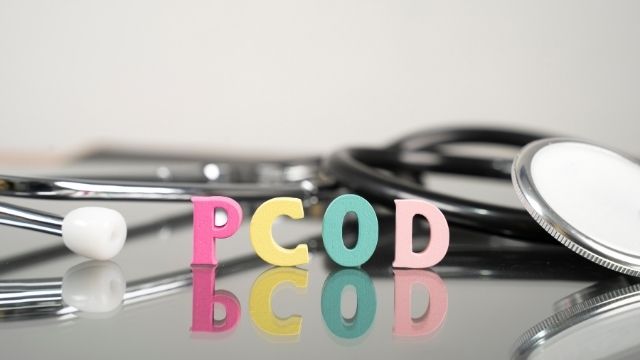
PCOD
Polycystic Ovarian Disease (PCOD), also known as Polycystic Ovary Syndrome (PCOS) is a common illness among women of conceptive age.

Endometriosis
Endometriosis is a painful disease. This disease develops when the endometrial-like tissue acts as a wound; thus, it thickens and bleeds at the time of menstruation.

Menstrual Problems
The menstrual cycle refers to the regular changes in the ovaries’ activity & The endometrium that make reproduction possible.
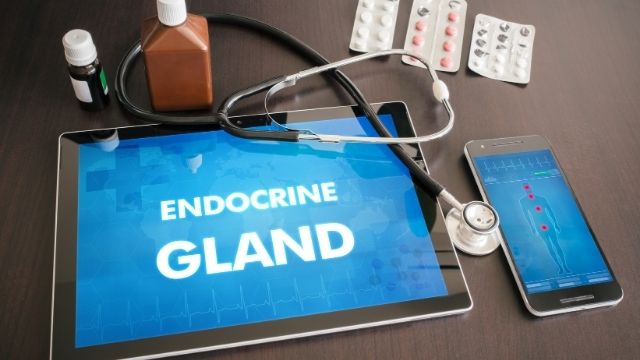
Gynecologic Endocrine Disorders
Hormones act as the chemical messenger in your body, which is responsible for the overall development of your body.
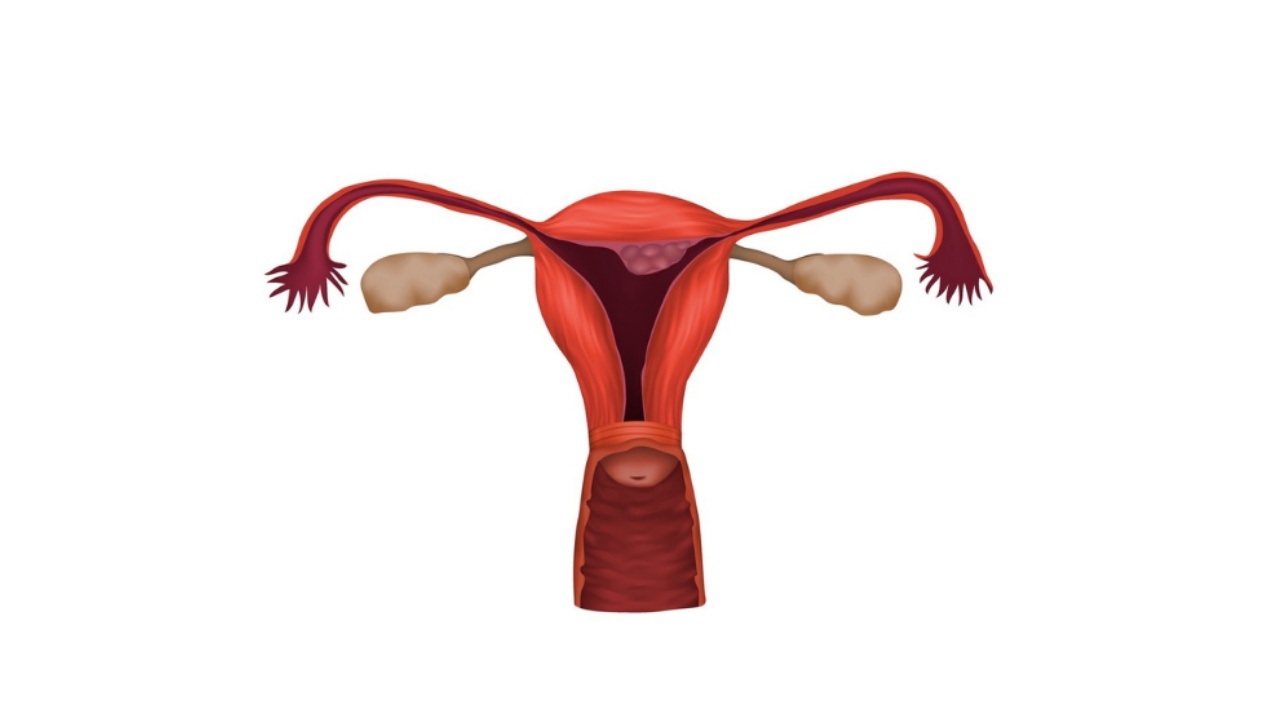
Uterine Fibroid
In women’s uterus, sometimes an abnormal growth occurs known as fibroids which are also referred to as tumors that develop with fibrous connective tissue and muscle cells.
Medical conditions treated by gynecologists
Some of the medical conditions that are treated by a gynecologist are:
- Adenomyosis
When the endometrium (inner lining of the uterus) breaks through the myometrium (muscle wall of the uterus), the condition is known as adenomyosis. It causes lower abdominal pressure, menstrual cramps, and bloating before menstrual periods.
- Adnexal tumors
Growths that are formed on the connective tissues and organs around the uterus are known as adnexal tumors. They are mostly non-cancerous, but sometimes they can be cancerous. Adnexal tumors are found in the ovaries.
- Amniotic band syndrome
During pregnancy, when the inner layer of the placenta gets damaged, amniotic band syndrome occurs. Amniotic bands (thin strands of tissue) are formed inside the amino if amniotic band syndrome occurs.
- Anterior prolapse (cystocele)
Inside the pelvis, when the bladder drops from its normal position and further pushes the wall of the vagina, it is known as anterior prolapse (cystocele).
- Asherman syndrome (intrauterine adhesions)
When adhesions (scar tissues) are formed inside the uterus, that uterine condition is known as Asherman’s syndrome. In many cases, the walls of the uterus also stick to one another.
- Atypical isoimmunization
When the blood protein of a pregnant woman is incompatible with the baby’s, it is known as atypical isoimmunization. It causes the pregnant woman’s blood protein to react and further destroys the blood cells of the baby.
- Bacterial vaginosis
It is a kind of vaginal infection that is very common among women aged 14 to 55. The symptoms of bacterial vaginosis are watery discharge and itching.
- Bladder outlet obstruction
This is usually a blockage at the neck or base of the bladder obstructing the flow of urine from the kidneys.
- Bleeding during pregnancy
When fertilized eggs are implanted from the lining of the uterus (implantation bleeding), and when there is increased blood flow during pregnancy (bleeding from the cervix), it causes bleeding during the time of pregnancy.
- Cancer during pregnancy
A Pap test done during pregnancy can confirm the presence of cancerous tissues in the cervix. Bloating, breast changes, headaches, and rectal bleeding are some of the symptoms of cancer. These are also very common during pregnancy. Gynecologists diagnose the exact cause by performing a pap test.
- Cervical cancer
Cancer in the cells of the cervix is known as cervical cancer. Pain during sexual intercourse, bleeding after menopause, and blood spots following or between periods are some of the symptoms of cervical cancer.
- Cervical dysplasia
Abnormal cell growth occurring as a precancerous condition on the surface lining of the endocervical canal or cervix is known as cervical dysplasia.
- Chronic pelvic pain in women
Pain in the belly button and below the hips, which lasts for more than six months, is known as chronic pelvic pain in women.
- Congenital cystic adenomatoid malformation (CCAM)
It appears as a cyst and mass in the chest before birth. These cysts are abnormal lung tissue that grows constantly but does not function properly. It is also referred to as congenital pulmonary airway malformation (CPAM).
- Congenital diaphragmatic hernia (CDH)
The chest fails to close during parental development because of the diaphragm that separates the chest. It leads to congenital diaphragmatic hernia (CDH). Due to this opening, the contents of the abdomen migrate into the chest. The growth and development of the lung are impacted.
- Congenital high airway obstruction syndrome (CHAOS)
It is the blockage of the fetus’s windpipe or voice box. This syndrome is caused by tracheal stenosis, tracheal atresia, obstructing tumors of the oropharynx, and obstructing laryngeal cysts.
- Conjoined twins
When identical twins are joined in the uterus, it is known as conjoined twins. This is a very rare instance.
- Diaphragmatic hernia
A hole in the diaphragm is a birth defect known as a diaphragmatic hernia.
- Double uterus
It is a very uncommon abnormality and can develop in a baby girl when she is in her mother’s womb.
- Ectopic pregnancy
When the fertilized egg grows outside the main cavity, it leads to ectopic pregnancy. It usually occurs in the fallopian tube. This type of pregnancy is also known as tubal pregnancy.
- Endometrial cancer
This is a kind of cancer that occurs in the lining of the womb or uterus.
- Endometriosis
It is a disorder when the tissue at the lining of the uterus grows outside the uterus. It involves fallopian tubes, ovaries, and tissues that surround the pelvis.
- Fallopian tube cancer
Cells that line the fallopian tube lead to fallopian tube cancer. It is treatable.
- Female infertility
When women fail to get pregnant, it leads to infertility. It can be due to physical problems, age, lifestyle, and hormonal issues.
- Female sexual dysfunction
Recurrent and persistent problems with sexual desire, response, pain, and orgasm that disturb you and your partner fall under female sexual dysfunction.
- Fetal anemia
An inadequate number of red blood cells in the fetal circulatory system causes fetal anemia. These cells carry oxygen to different organs and cells of the body. It can lead to various complications in the fetus.
- Fetal heart disease
While the baby is still developing, congenital heart disease can occur in the baby’s heart. This is known as fetal heart disease.
- Fetal macrosomia
When the newborn is much larger than average, it is known as fetal macrosomia. In that case, the weight of the baby is more than 8 pounds.
- Germ cell tumors
They are usually benign or cancerous and occur in the testis and ovary.
- Gestational diabetes
This is a condition when the blood sugar level of a pregnant woman becomes high.
- High blood pressure (hypertension)
When the force of the blood is too high against the walls of the artery, it leads to high blood pressure (hypertension). It makes the heart work harder while pumping blood and ultimately leads to the hardening the arteries.
- HPV infection
HPV infection is a kind of viral infection that leads to the growth of skin and mucous membranes. Some HPV is even responsible for different types of cancer.
- Imperforate hymen
When the hymen fails to perforate during the time of fetal development, it causes an imperforate hymen.
- Menopause
This process is the stopping of the menstrual cycle, and it is a natural cessation. Menopause depends upon age, but a woman can experience sudden menopause due to ovarian or pelvic damage.
- Menorrhagia (heavy menstrual bleeding)
When a woman experiences menstrual periods with abnormally prolonged and heavy bleeding, the medical term given for that condition is menorrhagia.
- Menstrual cramps
The lining of the uterus is expelled due to the contraction of the uterus during the menstrual period. During the uterine muscle contraction, the hormone-like substances cause inflammation and pain.
- Miscarriage
This is a loss of pregnancy and occurs, usually before 20 weeks of gestation.
- Multiple gestations
It is a kind of pregnancy where there is more than one baby at a time.
- Ovarian cancer
A kind of cancer that begins in the ovaries is known as ovarian cancer. Unless it spreads to the pelvis and stomach, it often remains undetected. This type of cancer has no symptoms in its early stages.
- Ovarian cysts
These cysts are fluid-filled pockets or scars in the ovary or on its surface. If the ovary cysts do not disappear in a few months, it may cause complications.
- Overactive bladder
It is a name given to a group of urinary symptoms and not a disease. The most common symptom of an overactive bladder is the sudden and frequent urge to urinate. Leakage of urine is very likely to happen in this condition.
- Painful intercourse (dyspareunia)
Dyspareunia is the medical term for painful intercourse. It is defined as the recurrent or persistent pain in the genitals during, before, or after intercourse.
- Pelvic organ prolapse
When one or more organs (uterus, bladder, or top of the vagina, bowel) fall from their usual position into the vagina, it is known as pelvic organ prolapse. Pelvic organ prolapse is not life-threatening but can be painful and cause discomfort.
- Premature birth
A birth that takes place more than three to four weeks before the due date is known as premature birth. Complications like slow weight gain, body temperature, immature lungs, and poor feeding are associated with premature birth.
- Preterm labor
Preterm labor is the regular contraction that leads to the opening of the cervix. It occurs after the 20th week and before the 37th week of pregnancy. A premature baby is the result of preterm labor.
- Urinary incontinence
It means a person urinates due to loss of control. The cause of urinary incontinence is weakened control over the urinary sphincter.
- Uterine fibroids
These are non-cancerous growths that develop in the female reproductive organ during the childbearing years.
- Uterine polyps
Uterine polyps are the growths that are attached to the inner wall of the uterus. It further extends into the uterine cavity. Overgrowth of these cells leads to uterine polyps.
A better understanding of your health and management of diseases can help to prevent many diseases in gynecology.
Best Gynaecologist And Obstetrician In Mumbai
A leading OB/GYN in Mumbai, Dr. Jay Mehta provides a comprehensive range of women’s health care ranging from laparoscopic surgery to customized IVF protocols. He has expertise in disorders of the female reproductive system, infertility, fibroids, cysts, endometriosis, PCOS, high-risk pregnancy and childbirth, etc.

Dr. Jay Mehta
MBBS, DNB—Obstetrics & Gynecology
IVF & Endometriosis Specialist, Laparoscopic Surgeon (Obs & Gyn)
Dr. Jay Mehta is a renowned IVF specialist and fertility-preserving surgeon in Mumbai, India. He is the director of Shree IVF and Endometriosis Clinic, Mumbai. He is a leading laparoscopic gynecologist in India for endometriosis and adenomyosis.
He is a well-known fertility and IVF specialist and also among the few doctors in the country who specialize in embryology and andrology. He operates India’s major cities, including Mumbai, Pune, Chennai, Hyderabad, Bangalore, Ahmedabad, Agra, Delhi etc.
To book an appointment, call: 1800-268-4000 or fill out our contact form

Google Reviews

Ankita Katyal

I am incredibly grateful for Dr. Jay's exceptional support throughout my IVF journey. Dr Jay has been like God sent an Angel for us. From our very first meeting, it was clear that Dr. Jay was not only a highly skilled and knowledgeable professional but also someone who genuinely cared about my well-being.
From my first meeting, he was very clear transparent, and straightforward about my protocol, treatment line, and success rate. After two difficult IVF cycles that failed, I was beginning to lose hope.
However, Dr. Jay’s unwavering encouragement and meticulous care helped me stay positive and focused. Thanks to God and of course to his expertise and dedication, WE FINALLY ACHIEVED SUCCESS!!!!!

Krish A

Dr Jay Mehta is the best Fertility doctor. I am glad to have IVF done with Jay sir.
This unit is very ethical and very honest at work. In my previous IVF cycle, I did not have embryos in Chennai. I was here and Dr and team had told me not to worry. I was given end to end transparency about my embryos and I was lucky to become pregnant in the 1st cycle here, though I was told that the success rate will be about 25 to 30%.
IVF space is competitive, but these guys don't do any Ads on Google. And still if you search, Dr Jay is ranked no.1. I was extremely impressed with that and I am happy that I took a call to travel to Mumbai from Chennai.
I am thankful to the entire team for handling my case nicely. And May God shower the team with his choicest blessings.

Forum Shah

I visited 3 years back for my IVF treatment at that time and also got good treatment with Dr. Jay Mehta … the best part is he would tell me straight away whatever the cause and outcome would be.
This time also I came for Endometriosis treatment n within 3-4 days decided to get operated as there was no looking back as I trust him for his treatment. Thank you Dr once again for the right advice 😊

Deepak Jagadale

Dr Jay Mehta and team are simply excellent people and brilliant outcomes in Fertility services. Very very honest and humble doctor.
Thank you for the valuable guidance during the IVF process and the excellent and no hidden costs during IVF procedure. For middle class people it's a big relief.

Avinash Jain

Dr. Jay Mehta is a result-oriented specialist in his field and the best we could ask for, in a Metro city. His line of treatment for IVF is different from other IVF clinics.
The support provided by doctors and staff as well as all other attending doctors is phenomenal. We are very satisfied and will also highly recommend to others the IVF treatment at Shree IVF Clinic Mumbai.

Vijaya Garg

Dr. Jay Mehta is one of the best gynaecologist doctor of our India. I trust him faithfully and would like to recommend each and every one that don't waste time moving here and there to another doctorand .
I m sharing my experience I wasted my time mand oney by moving from one doctor to other and my problem was unsolved I'm thankful to Dr. Priyanka Shukla mam of trident hospital for suggesting Dr. Jay Mehta sir for my treatment . Now I'm pain-free...Thank you Dr. Jay Mehta sir... you are really my Boley baba shiv shsmbu. I m thankful to all the staff members of Shree IVF hospital
Blogs

How To Choose The Right Gynecologist For Pregnancy?
A good gynecologist should be experienced, knowledgeable, and capable of making you feel confident and comfortable as you navigate through your pregnancy journey

14 Things to Know Before Choosing a Gynecologist
When you find out the “good news” that you are having a baby, you first want to have a healthy pregnancy and baby.
Videos
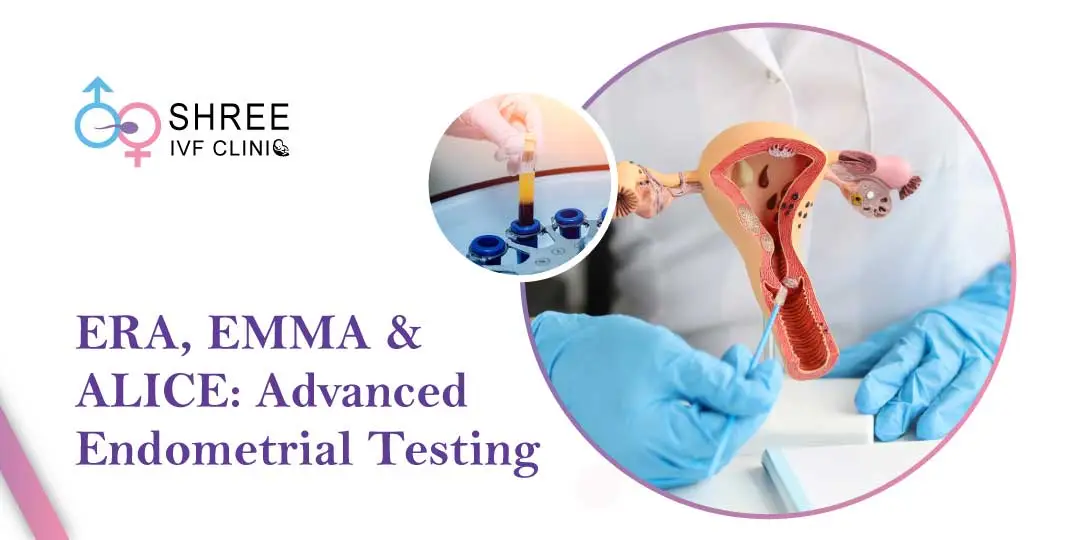
Advanced Endometrial Testing Explained: ERA, EMMA & ALICE
What are ERA, EMMA & ALICE tests? They are advanced tests that check if your uterus is ready for embryo implantation and can help improve IVF success
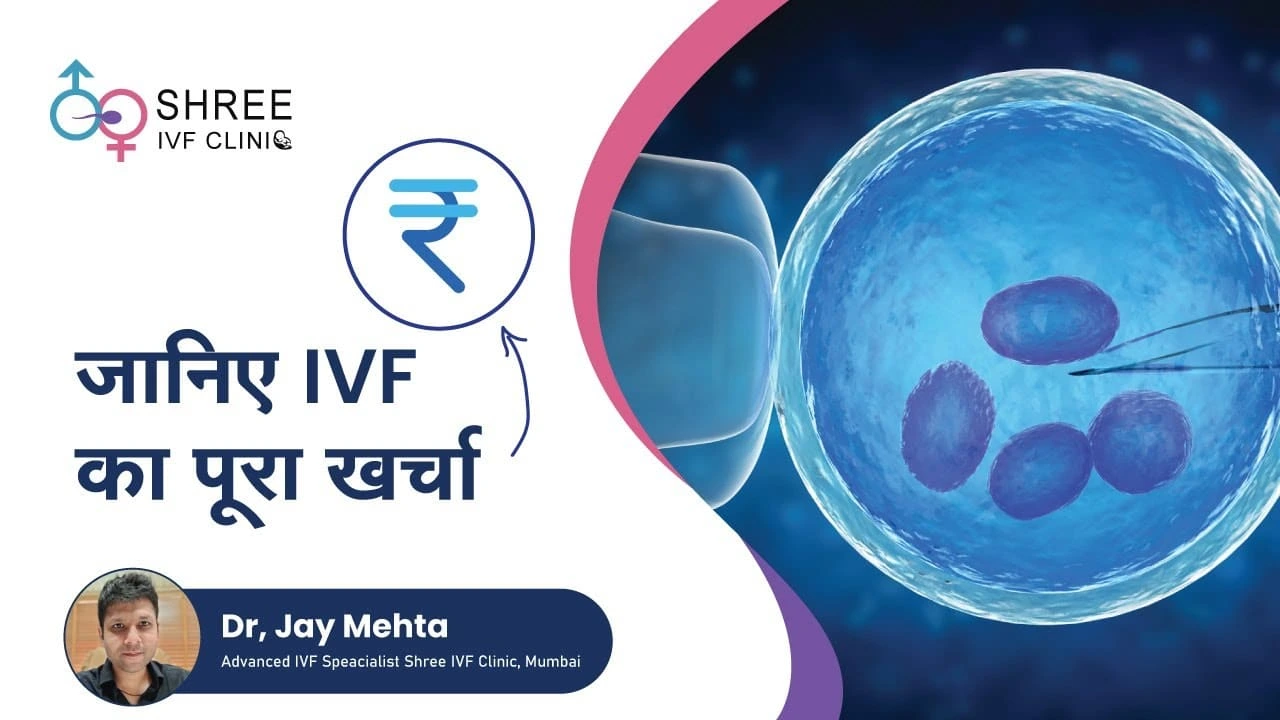
Hidden Cost of IVF Treatment
A single IVF cycle in India can cost anywhere from ₹1,50,000 to ₹2,25,000. Some clinics offer lower prices but may exclude medicines, freezing, and hatching from the package
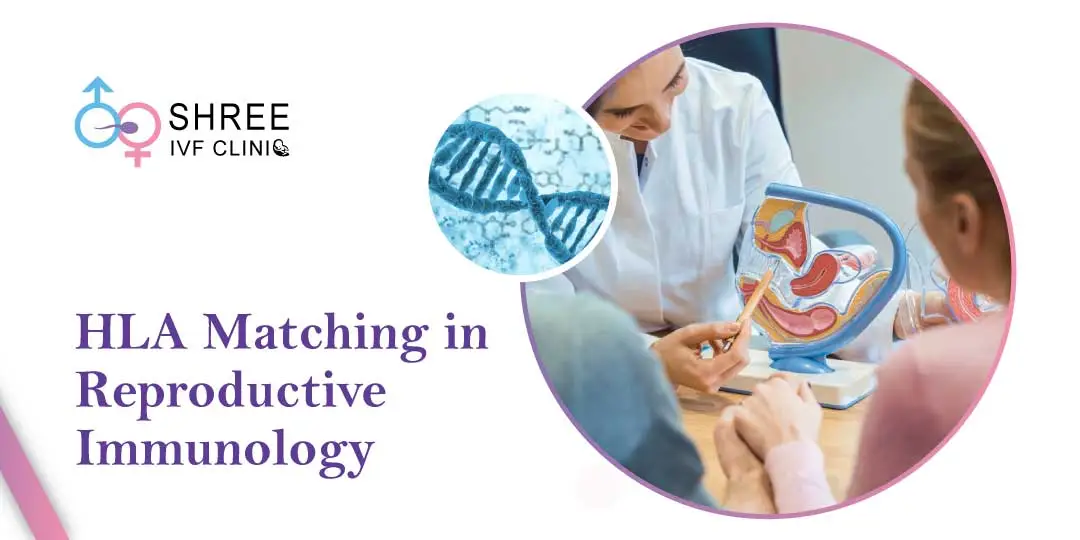
How to Interpret HLA Matching in Reproductive Immunology?
HLA typing is often used in reproductive immunology to help couples facing recurrent miscarriages, IVF failure, or unexplained pregnancy loss find answers & personalized care

